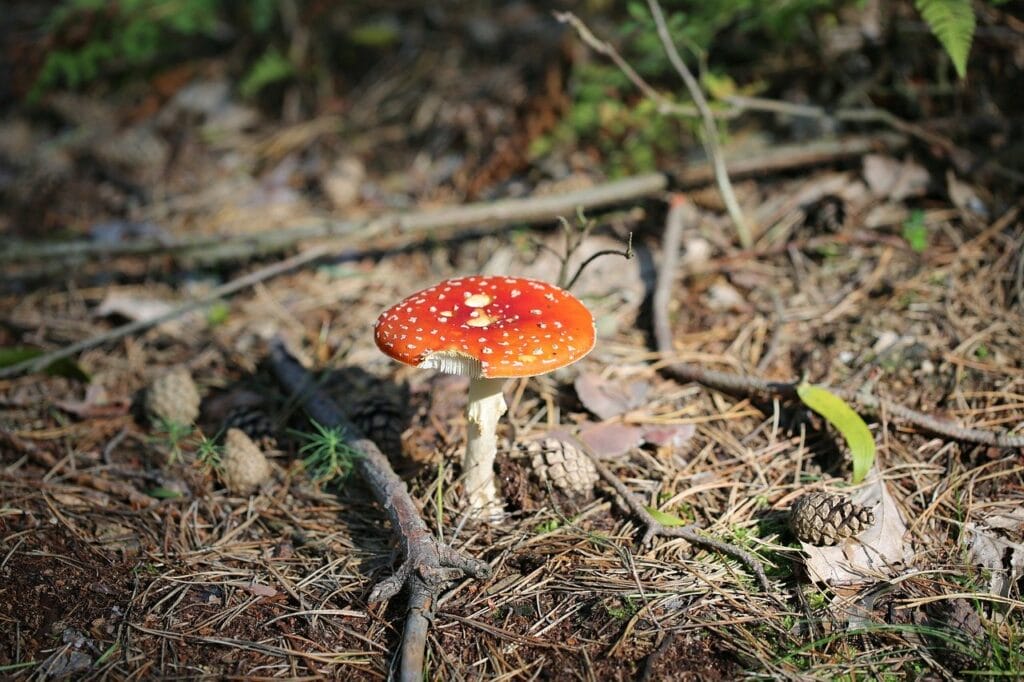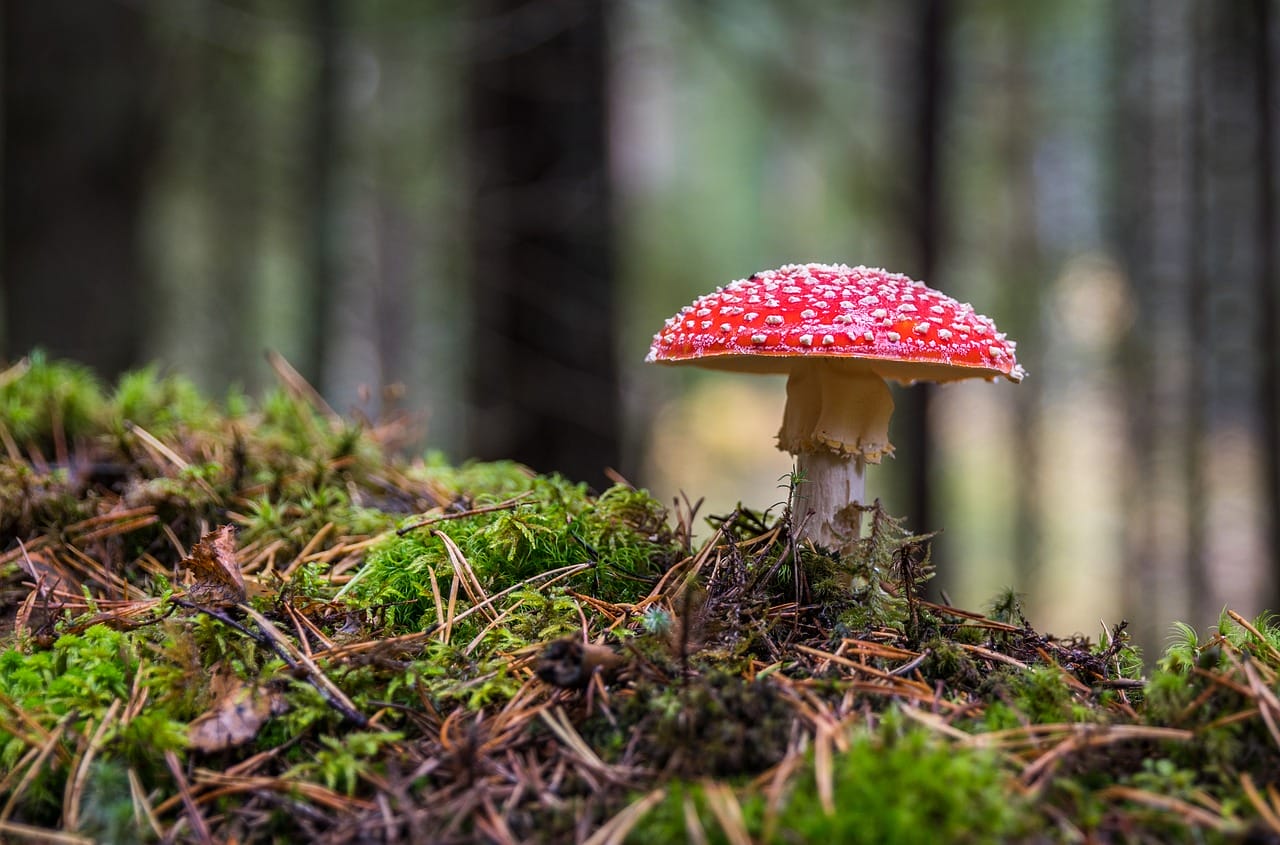For thousands of years, humans have observed and purposefully utilized the psychedelic properties of certain plants and fungi.
Among these, fungi, especially magic mushrooms, are identified as the primary natural reservoir of psychedelic substances.
The psychedelic compound psilocybin, extracted from mushrooms, holds a notable position in history, being employed in spiritual rituals and therapeutic practices.
Many researchers are focusing their resources on exploring the potential health benefits of shrooms online. Current studies have shed light on the effects of psilocybin mushrooms. These insights bring hope to numerous people and highlight the need for a debate on their integration into Canada’s healthcare system.
Key Points:
- Magic mushrooms, rich in the mind-altering compound psilocybin, have significant potential for addressing mental health concerns in Canada.
- Psilocybin is safer and poses a lower risk of addiction and toxicity compared to opioids.
- Psilocybin has shown extended effectiveness in managing depression, with effects that can persist for up to a year.

Understanding Psilocybin
Psilocybin is a tryptamine, specifically an indole-alkylamine, derived from magic mushrooms and structurally similar to lysergic acid diethylamide (LSD). It induces hallucinogenic and euphoric states, likely due to its interaction with serotonin (5-HT) receptors in the brain.
Given its interaction with serotonin receptors, high-quality magic mushrooms show a unique ability to aid in the treatment of mental health issues.
Canada’s Mental Health and Opioid Crisis
Common Mental Health Disorders in Canada & Treatment Resistance
| 2012 | 2022 | |
| Major Depressive Episodes | 4.7% | 7.6% |
| Generalized anxiety disorder | 2.6% | 5.2% |
| Social phobia | 3.0% | 7.1% |
| Alcohol use disorder | 3.2% | 2.2% |
Over one-third (36.6%) of individuals struggling with mood, anxiety, or substance use disorders have reported unfulfilled or inadequately addressed healthcare and mental health requirements.
An academic article from the Canadian Journal of Psychiatry sheds light on the attitudes towards seeking treatment by patients suffering from depression. This study analysed 1282 patient records from 135 doctors and found 263 patients with treatment-resistant depression (TRD), indicating a prevalence rate of 21.7% across Canada.
The Opioid Crisis
About 8 million Canadians, which is one in every five, are afflicted with chronic pain. If left unchecked, pain can negatively impact various facets of a person’s life.
Healthcare professionals sometimes recommend the use of opioid medications for managing pain. While opioids can help alleviate pain and improve functionality, they also carry potential risks.
Between January 2016 and March 2022, at least 30,843 opioid toxicity-related deaths were recorded in Canada. The largest number of these tragic events happened in early 2021, with a staggering 5,368 cases reported. It’s important to mention that the vast majority, over 88%, of these incidents occurred in the provinces of British Columbia, Ontario, and Alberta.
Regarding Major Depressive Episodes
A study featured in the Journal of Psychopharmacology recruited 27 individuals with a prolonged history of depression. Most of these people had suffered from depressive symptoms for approximately two years before joining the study. 88% of these individuals had previously been treated with conventional antidepressants, and 58% reported ongoing use of such medications during their depressive episodes.
The researchers noted significant reductions in depression following psilocybin treatment for both groups. They also observed that the severity of depression remained consistently low at the follow-up intervals of one, three, six, and 12 months post-treatment.
Regarding General Anxiety and Social Phobia
A case study published in the Croatian Medical Journal in October 2021 examined HTML:
The narrative centres on a
A single 16-year-old boy, grappling with severe anxiety, social isolation, and declining academic success, sought help from a mental health clinic. His struggles were further compounded by a learning disability and a lack of motivation for schoolwork, which made group therapy an overwhelming and unfruitful endeavor.
Following three psilocybin therapy sessions over a period of 18 months, significant positive transformations were noted. His anxiety levels decreased, his communication skills with peers and teachers enhanced and he began to openly express his emotions. He started actively participating in group therapy and his interpersonal relationships improved.
Psilocybin Therapy for Alcohol Use Disorder
A recent clinical trial highlighted in a study published in JAMA Psychiatry on August 24, demonstrated the potential of psilocybin when combined with psychotherapy in treating alcohol use disorder. The progress of 93 patients afflicted with the condition was monitored for a period of 32 weeks.
Of the 48 individuals who underwent psilocybin-assisted therapy, there was a remarkable 83% reduction in alcohol consumption within eight months of their initial dose, in contrast to a 51% decrease in the placebo group. Almost half of the participants who were given psilocybin ceased drinking entirely.
Addressing the Opioid Crisis
Elena Argento, a postdoctoral fellow at the University of British Columbia and BC Centre on Substance Use, is exploring the medicinal applications of psychedelics.
Argento explains that psilocybin operates in two ways to decrease addiction risks: it impacts both neurobiology and psychology. She underscores the transformative experiences psychedelics can provoke, characterized by profound awe and self-transcendence. These experiences can often lead individuals to discover new meanings and aims in life, potentially instigating behavioral changes, particularly in relation to addiction.
In a recent longitudinal study conducted by Argento and the BC Centre on Substance Use, the study demonstrated a significant decrease in the likelihood of continued daily illicit opioid use among those who had recently used psychedelics or had done so in the past six months.
Argento’s 2018 study also proposed that psychedelic usage served as a protective factor against the link between prescription opioid use and suicide risk.
A separate study identified correlations between psilocybin use and a reduced risk of opioid use disorder. This earlier research indicated a 40% reduced risk of opioid misuse and a 27% lower risk associated with opioid dependence over the over the past year from the use of psychedelics.
Health Canada and Other Regulatory Bodies Must Consider Psilocybin as Part of Canada’s Therapeutic Approach
Despite the recognized potential of psilocybin to positively affect Canadians’ mental health, it remains hard to obtain. Health Canada allows healthcare professionals to prescribe this treatment under the Special Access Program, yet its stringent rules constitute a significant hurdle for many professionals and patients.
The use of psilocybin-containing mushrooms for therapeutic purposes could revolutionize mental health care in Canada by offering potentially transformative advantages. Instead of depending on traditional treatments, which are often less effective, such as pharmaceuticals or opioid replacement therapy, psilocybin therapy presents an alternative with a potential for profound and enduring effects.
There is evidence indicating that psilocybin therapy could provide long-term benefits, potentially saving patients from the expenses of ineffective treatments. Moreover, research suggests that psilocybin is relatively safe, with low toxicity, a minor risk of misuse, and infrequent incidents of overdose.
Where Can Psilocybin be Bought Online?
For Canadians who find it hard to access psilocybin therapy, there is the option of buying magic mushrooms online to improve their current conditions. A range of magic mushroom products is available, from high-dose shrooms to microdose magic mushrooms.
High-dose shrooms refer to psychedelic mushrooms available in various forms, such as dried magic mushrooms, edibles, or beverages, consumed for their hallucinogenic and therapeutic effects.
Microdosing magic mushrooms involves products containing small amounts of magic mushrooms. These products come in capsules, shroom edibles, or shroom tea. Buying shrooms online offers an alternative way to subtly experience the benefits of these mushrooms. Shrooms Near Me Canada is the exclusive online provider of premium magic mushrooms, ensuring the highest quality.
Is Psilocybin Suitable for the Canadian Healthcare System?
Psilocybin is often misunderstood due to its recreational use. It’s essential to note that compared to opioids and other commonly prescribed drugs in healthcare, psilocybin has a safer profile.
An increasing amount of evidence suggests its potential benefits, similar to those of marijuana, in treating a variety of mental health conditions. dimensions of reality.
Magic mushrooms have a long-standing reputation in wellness circles for their ability to aid mental health therapies and spur personal growth.
What are the possible dangers and side effects of magic mushrooms?
Magic mushrooms can produce a range of effects, both positive and negative. These might include hallucinations, altered sense of reality, and psychological transformations. However, they can also lead to undesirable effects such as nausea, dizziness, and in rare instances, psychological distress. It’s critical to treat the use of magic mushrooms with caution and respect, acknowledging the possible risks involved. Seeking advice from a healthcare expert before initiating any new routine involving magic mushrooms is always a prudent move.
Is it secure to purchase magic mushrooms online?
Buying magic mushrooms online can indeed be safe, but only if you select a trustworthy source. It’s vital to thoroughly investigate the product, brand, and the online dispensary prior to making a purchase. Customer evaluations and ratings can be helpful in determining product quality and the trustworthiness of the service. Always opt for dispensaries that put customer safety and satisfaction at the forefront and provide secure payment methods.
Can I cultivate magic mushrooms on my own?
Yes, it is feasible to grow magic mushrooms at home, and it can be a rewarding endeavor. However, it necessitates specific conditions and a comprehensive knowledge of the cultivation process. You can locate numerous kits and guides online to help you in your mushroom-growing journey. However, please remember that the legality of cultivating magic mushrooms varies regionally, so ensure you’re complying with your local laws and regulations.
Some individuals prefer a more measured approach within the wellness domain, consuming small amounts of mushrooms to harness their benefits without triggering hallucinations.Articles That Might Interest You:





